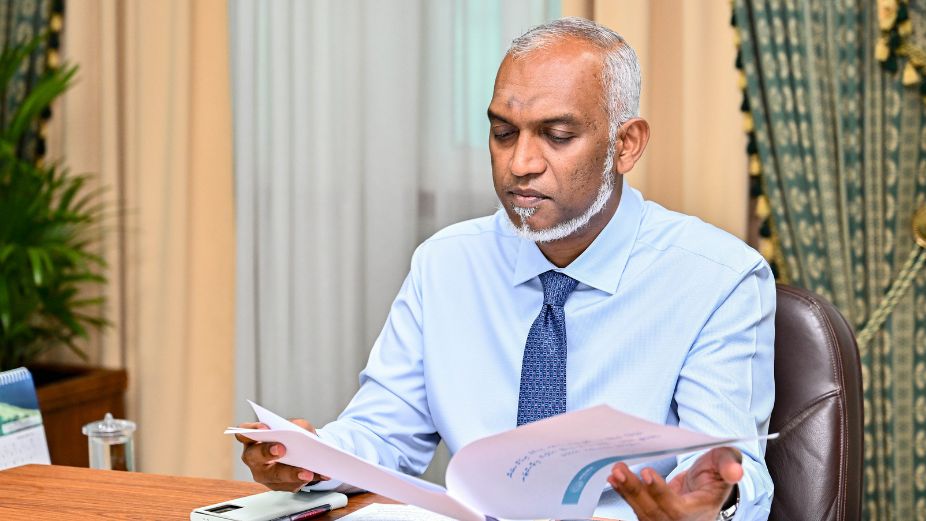
The National Disaster Management Council, chaired by President Dr Mohamed Muizzu, has approved the ‘Maldives Disaster Risk Reduction Strategy 2024-2030’, marking a significant step in the nation’s efforts to mitigate disaster risks and enhance resilience. The strategy was ratified during a council meeting held at the President’s Office earlier this week.
Focusing on both natural and human-induced disasters, including the growing challenges posed by climate change, the strategy aims to minimise damage by addressing vulnerabilities in the Maldives’ natural and built environments, as well as in residential and infrastructural settings. By tackling the root causes of risk, the strategy intends to create safer and more resilient communities across the island nation.
Strengthening Resilience Through Global and Local Goals
The strategy aligns closely with international frameworks such as the Sendai Framework for Disaster Risk Reduction 2015-2030, which prioritises “Building Back Better” in post-disaster recovery and rehabilitation. This approach emphasises not only restoring communities but also ensuring they are better prepared for future challenges.
As a Small Island Developing State (SIDS), the Maldives faces unique vulnerabilities to climate change, including rising sea levels and severe weather events. The newly adopted strategy includes measures to strengthen the country’s global advocacy against climate risks, highlighting its role as a voice for SIDS in international forums.
In line with the Sustainable Development Goals (SDGs), the strategy also focuses on enhancing human capacity in disaster preparedness and management, ensuring communities can adapt effectively to evolving risks.
Integrated Approach to Climate and Disaster Risk Management
The strategy complements other national initiatives such as the National Adaptation Plan, developed under the Paris Agreement. An annex dedicated to resilience efforts outlines plans for improving efficiency through the integration of disaster risk reduction and climate adaptation measures.
By adopting this strategy, the Maldives reinforces its commitment to safeguarding its population and environment. As one of the first countries to ratify such a comprehensive disaster risk reduction framework, the Maldives sets an example for other nations facing similar challenges.
The strategy’s implementation will not only address immediate risks but also contribute to long-term sustainability, ensuring the Maldives is better equipped to navigate the uncertainties of a changing climate.












